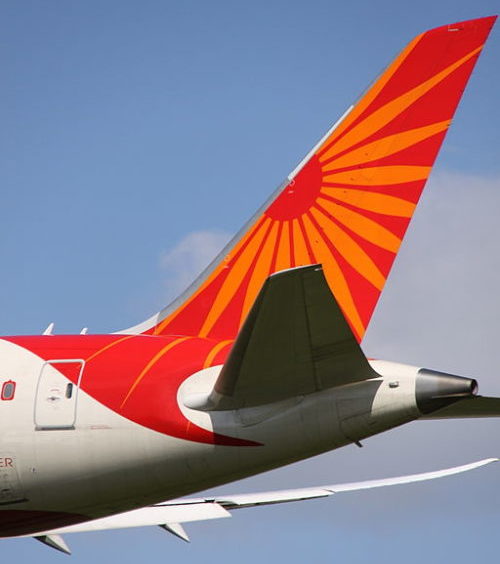
Air India officials says that at flight check-in, women often say that they would rather sit near a female than a male. The airline carrier is using this to explain its choice to provide women-only seating to passengers on its domestic flights.
Air India’s new women-only seating options started last week. Reuters reports that as of Wednesday, six seats in the third row in economy class would be allocated for solo women travelers, “making it the only airline in India, and possibly the world, to take this step.” The seats will be offered at no extra cost for up to one hour before check-in time closes. After evaluating the effectiveness of the move on its domestic flights, Air India intends to eventually try it out on their international flights.
Offering such women-only options is not new for India. “India already has policies which segregate women from men on public transport to avoid sexual harassment and molestation. Many trains—both underground and over ground—have carriages reserved for women, and some buses have women-only seats.”
Despite its status as an emerging economic giant and its recognition as one of the world’s largest democracies, the apparent sexual assault issues India suffers from are increasingly coming to the surface. The problems often brand the country as supporting a so-called rape culture. NPQ has offered analyses in the past of India’s sensitivity towards growing discourse regarding sex attacks in the subcontinent, and of government attempts to censor details associated with brutal, deadly crimes in India that shocked the world.
Sign up for our free newsletters
Subscribe to NPQ's newsletters to have our top stories delivered directly to your inbox.
By signing up, you agree to our privacy policy and terms of use, and to receive messages from NPQ and our partners.
It’s hard to deny that growing problems associated with sexual assault may dominate concerns here. Various news reports are linking Air India’s women-only seats options to sexual assault incidents reported over the last month. Reuters reports:
On December 21st, a 40-year-old female passenger complained that a man sitting next to her groped her as she slept during a flight from Mumbai to New York. Less than 2 weeks later, a female flight attendant complained of being molested and subjected to lewd language by a male passenger during a flight from Delhi to Muscat.
However, Air India General Manager G. Prasad Rao says that the airline’s move is not connected to any reports of sexual assaults; it’s simply that since “economy class doesn’t have much space to move around easily and comfortably for women…this option will give them more choice.” One might argue that “space” does seem to be a special issue for Air India. After all, this is the airline that grounded 130 flight attendants back in 2015 for being overweight. The Telegraph further reported that in 2009, “the airline grounded ten flight attendants who failed to slim down.”
Realistically speaking, forms of sexual assault on women have led to segregation on public transportation in several countries, including Japan, Mexico, Brazil, Indonesia, Egypt, and Germany. In Japan, the presence of women-only cars on a train is often welcomed by men, who say they fear being falsely accused. While NPR reported a few years ago that India lacked sufficient supporting data on sexual assault on the metro, India’s media outlets confirm that women’s safety in public transport is becoming a key issue on both the regional and global scale. Meanwhile, many women may feel more empowered as the trend to “name-and-shame” offenders through social media (including via live recordings posted on YouTube) picks up.
In the meantime, as women in India continue to “face a barrage of threats, including sexual violence whilst traveling, say activists blaming deep-rooted patriarchal attitudes that objectify women,” questioning Air India’s true rationale for offering women-only seating does not seem out of line. What should concern us even more is its impact and the message it sends to the world with respect to seemingly isolationist options being taken to protect women from sexual harassment in public spaces.—Noreen Ohlrich













